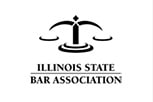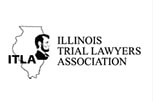Dangerous Medicine: Blood Thinners & Patient Safety

Patients receiving medical care trust that physicians will use reliable medical techniques and proven medications to improve their health condition. Whether this takes place within the operating room, or simply through the prescription of medication, patients rely upon medical science to keep them alive. For a growing number of patients, this means the prescription of anticoagulants that help reduce the risk of blood clots.
For many years, physicians relied upon Warfarin, Coumadin, and Jantoven for this purpose. In 2011, Janssen Pharmaceuticals, Inc., a subsidiary of Johnson & Johnson, released Xarelto onto the market following FDA approval. The anticoagulant drug is intended to be used for the treatment of deep vein thrombosis and as prophylaxis after hip or knee replacement surgery. It is also approved to be used for the prevention of thromboembolism in atrial fibrillation.
Anticoagulants are highly potent drugs and numerous cases of excessive bleeding have been attributed to the use of Xarelto. In one study conducted in 2014, unsafe fluctuations of the once-a-day drug were noted within the bloodstream of patients taking the drug. These fluctuations were more than 3 times greater than similar anticoagulants that are taken twice daily.
Xerelto and many other anticoagulants have no antidote. Once administered, patients and health professionals must closely monitor a patient’s health for signs of adverse side-effects. Even with close monitoring, there is little that can be done should severe internal bleeding occur. For this reason, physicians are strongly advised to notify their patients that the use of anticoagulants can lead to brain hemorrhaging, gastrointestinal bleeding, rectal bleeding, stroke, and other serious injury.
Since FDA approval in 2011, Xerelto has proven particularly dangerous and there are just shy of 1,700 personal injury and wrongful lawsuits that have been filed against Janssen Pharmaceuticals, Inc., Johnson & Johnson, and Bayer relating to these injuries; 400 of these lawsuits were filed in August 2015 alone. Patients and their surviving families that are suing argue that the companies named in the suit failed to adequately warn them of the risks associated with taking the drug. Further, plaintiffs claim that these entities deliberately downplayed the risks within the advertising provided to patients, and within the information they provided to physicians. These lawsuits are expected to reach the courtroom starting in late summer of 2016.
The number of lawsuits filed in relation to Xerelto, Pradaxa, and other anticoagulants will most likely rise as the statute of limitations on these and others has yet to expire in most states. In Illinois, the statute of limitations for filing a medical malpractice suit is up to two years after the time of treatment, or up to two years after later discovery. Thus, patients and their Chicago medical malpractice lawyers may file their lawsuits up to four years after the drug was first prescribed. In the case of Xarelto, that would mean anytime after the FDA approval took place and the patient was prescribed the drug for treatment of any of the conditions the FDA approved.
Late last year, there were attempts to consolidate the Xerelto lawsuits for pretrial proceedings within the courtroom of US District Judge David Hendon in St. Louis Illinois. Judge Hendon had already presided over a prior settlement of $650 million in suits filed against Pradaxa, which is one of Xarelto’s leading competitors. In that lawsuit, over 500 deaths had been attributed directly to the use of Pradaxa. However, that did not occur and instead pretrial proceedings took place in the New Orleans courtroom of US District Judge Eldon Fallon. Fallon’s experience includes having overseen the previous consolidation of lawsuits that took place in regard to the $4.85 billion Vioxx settlement in 2007. Thus, he had considerable experience and understanding of the dangers of anticoagulant medication.
In the most recent development, the family of a Florida man has filed a lawsuit in Philadelphia claiming Xerelto failed to prevent a stroke due to atrial fibrillation. This is the first of what may become a number of lawsuits should the court determine that the once-a-day drug failed to protect the patient from having a stroke. Should the plaintiff’s prevail in this case, it could lead to a new round of stroke related lawsuits being filed by patients, or their surviving family members.
It remains to be seen how many people will be affected by these lawsuits and their outcomes. As of 2013, nearly 5 million people around the world had been prescribed Xerelto; a number that is twice as high as those who were prescribed Pradaxa. Many millions more have been prescribed Warfarin, Comoudin, and Jantoven. These numbers represent a considerable number of people who are at risk for suffering potentially lethal side-effects from the use of anticoagulant medication. As such, the outcome of the Xerelto suits is something patients prescribed anticoagulant medication should monitor closely as the safety of such medication is adjudicated.




